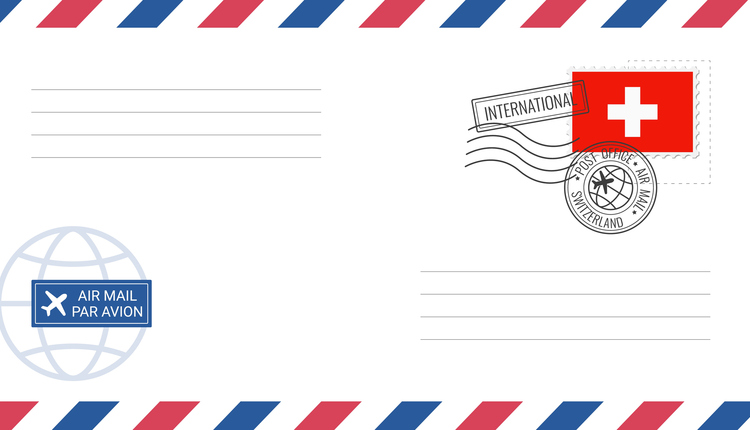Editor’s Note: Merry Law is retiring, so this will be her final regular column for Mailing Systems Technology. We’d like to thank her for all of her contributions over the years, and we wish her the best in this new chapter!
It’s no surprise to anyone reading this that the postal sector has been changing, domestically and internationally. Declining mail volumes and revenues, competition from private sector delivery companies, increasing requirements for electronic information, and higher costs for mailers and postal operators are contributing to a crisis in the postal world. We need to look beyond the postal sector and look more broadly at the industry processing and delivering small packages, as they become a greater proportion of mailed items and a greater source of postal revenue.
Until about 30 years ago, all postal operators were government entities. Then, in the late 1990s, the EU directed its then-15 member countries to allow competition in the postal sector and end most postal subsidies, while continuing to provide universal postal service. At the time, this was seen as very risky, with many predictions of outcomes that fortunately never came to pass.
Since those countries first instituted “liberalized” postal sectors, most highly developed countries and many less developed countries have done the same. In some cases, the postal operator designated to provide universal service within the country is privately owned; in others, that postal operator is partially government owned. Postal competition and government regulation of the sector varies widely in the liberalized countries (the US, Canada, and Australia are exceptions to this trend).
By the time liberalization and privatization of the government-run postal operators began, letter volumes were already decreasing. Revenue from mail was declining. Many postal operators depended, and continue to depend, on non-postal services, such as banking and insurance and fees from government services offered at post offices. (The USPS is banned by law from offering some services that contribute revenue for foreign postal operators.) Even with this revenue, many postal operators struggled to stay solvent, and not all of them have succeeded, whether in countries with liberalized postal sectors or not.
In some (perhaps most) developing countries, the situation was exacerbated by a lack of resources. Although these countries may have a postal monopoly for the national postal operator, the lack of financial resources and, occasionally, fraud and corruption, have contributed to extremely poor mail delivery and failing/failed postal services. The UPU and the international postal network seem unable to remedy the poor services that have existed for decades in some regions and countries.
As more small packages entered the market, while regular letters, magazines, and newspapers in the mail continued to decrease, competition from private delivery companies became more problematic for postal revenue. In the US and other countries with work-share or negotiated discounts, mail consolidators and other mail services companies have long played a role in the chain from the company that originates or “owns” the mail, along with pick-and-pack warehouses, transshipment hubs, and freeport facilities. All these services are used whether the final delivery will be through a postal service or a private delivery company. A private delivery company moving the item part way along the delivery chain then handing it off to a postal operator for final delivery has become more common with packages, particularly internationally. (The USPS has recently pushed back on this for domestic packages.)
More recently, postal operators, including the USPS, want more advance notice of larger quantities of mail entering their individual systems, and countries, particularly developing countries, want to know what is entering their borders. For international items containing goods (basically, anything other than documents with no commercial value), even more documentation is required for customs and sales tax purposes in advance of the items being shipped to the destination country. This Advance Electronic Data (AED, or EAD as it is known in most other countries) is required from postal and non-postal shippers. As requirements for customs and tax information have increased, new service providers have developed to provide the data required by an increasing number of countries and to assist with pre-payment of duty and other taxes by the sender. Postal operators have lagged behind the private sector in providing this option.
The staff and member countries of the Universal Postal Union (UPU), the UN specialized agency coordinating the international postal network, are aware of these and other issues facing the global postal network. In 2004, the UPU’s Congress of member countries approved a new body, the Consultative Committee (CC), to provide private sector advice. The CC was originally limited to non-profit associations and representatives of UPU member countries. It languished as it had little effect on the UPU’s decision-making. Renewed efforts to give CC members a greater role in the UPU and allow more involvement by the private sector in the UPU have begun within the last few years. Whether these newer efforts will be more successful is not yet known.
A well-functioning global postal network will need cooperation between postal operators, customs and tax authorities, governmental regulators of postal operators and delivery companies, supranational trading unions, and the wide variety of public and private sector players in the delivery chain. The tensions between customs and tax authorities and postal operators, between private-sector delivery companies and postal authorities, between countries around AED… all of these need thoughtful resolutions. Whether the delivery network for mail and small packages is in transition or decline will depend on how well all the parties cooperate on moving through the current matters of concern.
Merry Law is President of WorldVu LLC and the editor of Guide to Worldwide Postal-Code and Address Formats. She is a member of the UPU’s Addressing Work Group and of the U.S. International Postal and Delivery Services Federal Advisory Committee.
This article originally appeared in the November/December, 2024 issue of Mailing Systems Technology.










